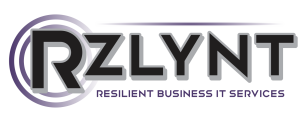HIPAA Compliance
HIPAA (Health Insurance Portability and Accountability Act) is a federal law in the United States that sets the standards for protecting sensitive patient health information. HIPAA compliance is a critical concern for healthcare organizations, as failure to comply with HIPAA can result in significant fines and legal penalties.
To achieve IT compliance with HIPAA, healthcare organizations must take a number of steps, including:
Conducting a risk analysis: Healthcare organizations must identify and assess potential risks to the security and confidentiality of patient health information. This can include conducting a thorough assessment of the organization’s IT systems and infrastructure.
Implementing administrative, physical, and technical safeguards: HIPAA requires healthcare organizations to implement a variety of safeguards to protect patient health information. These can include administrative controls, such as policies and procedures, physical controls, such as secure facilities and access controls, and technical controls, such as encryption and firewalls.
Training staff on HIPAA requirements: All staff members who have access to patient health information must be trained on HIPAA requirements and the organization’s policies and procedures for protecting patient information.
Conducting regular audits and reviews: Healthcare organizations must regularly review and audit their IT systems and infrastructure to ensure ongoing compliance with HIPAA.
Reporting and responding to breaches: If a breach of patient health information occurs, healthcare organizations must report the breach to the affected individuals and to the U.S. Department of Health and Human Services. The organization must also take steps to mitigate the damage caused by the breach.
Overall, IT compliance with HIPAA requires a comprehensive approach that includes risk analysis, safeguards implementation, staff training, ongoing monitoring and review, and breach reporting and response. By taking these steps, healthcare organizations can protect patient health information and avoid costly legal penalties.
